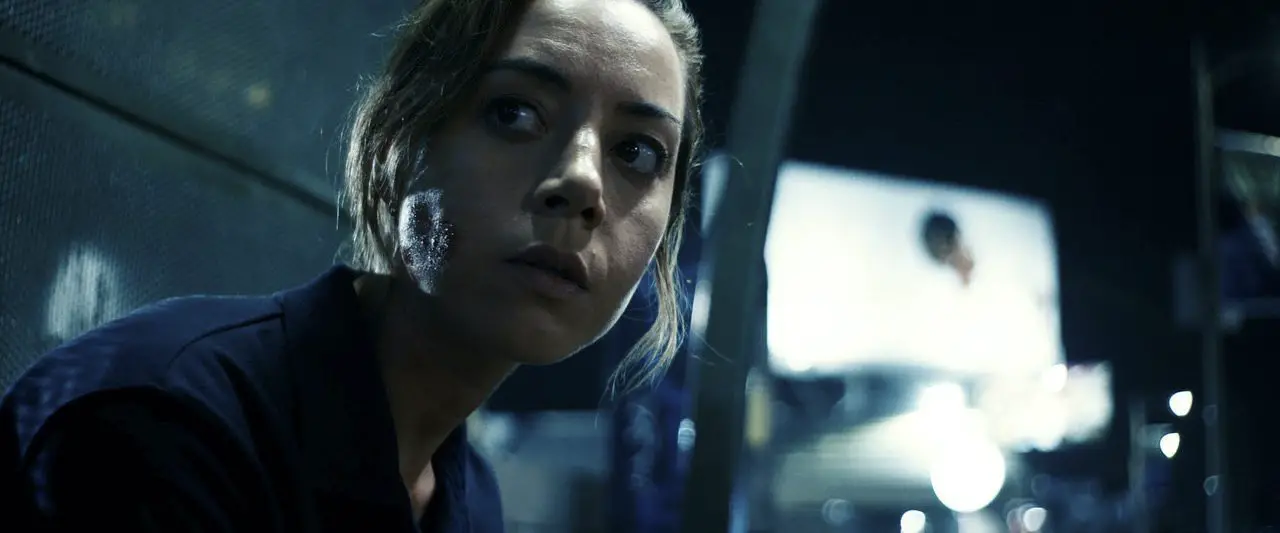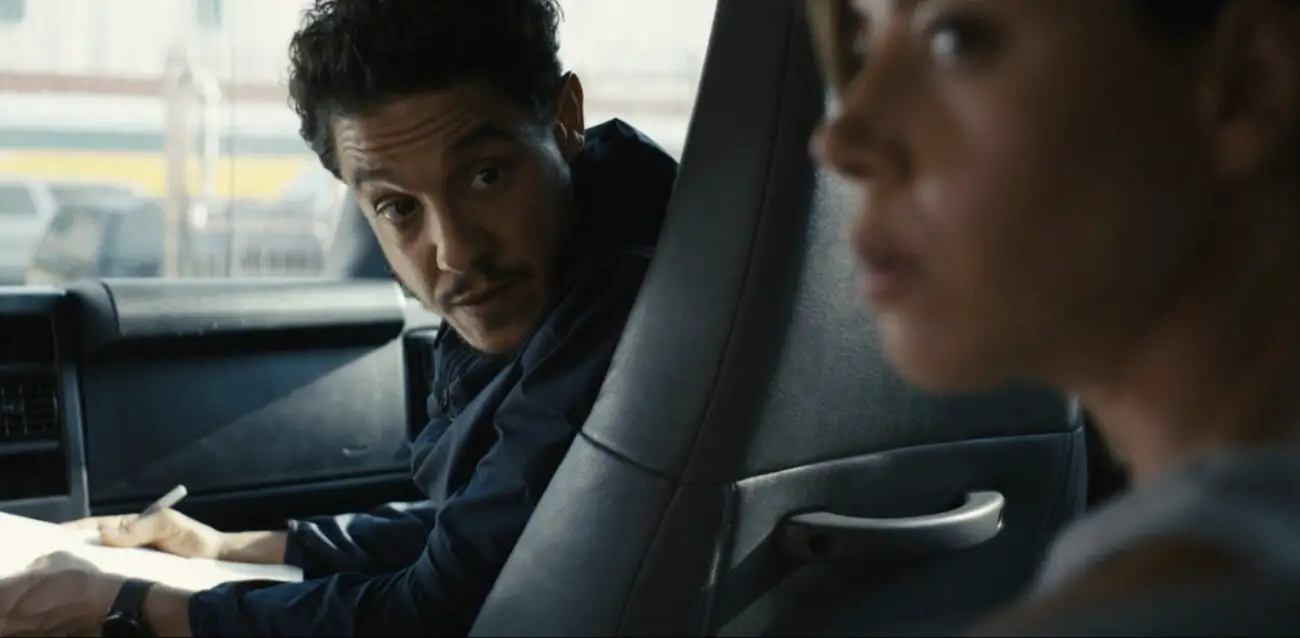Emily (Aubrey Plaza) is a food delivery driver living in Los Angeles. She works long hours, spends too much time in her car, and struggles under the weight of large student loan debt. Emily went to art school, and in a perfect, moneyless world, she would spend her days drawing. Her current circumstances are so far from that ideal world that when she’s presented with an opportunity to make $200 an hour in an illegal credit card scam run by Youcef (Theo Rossi), it’s too enticing to pass up.
Emily the Criminal sees Plaza in a more understated role than most have come to expect from her. Even in her breakout role in Parks and Recreation, where she played the moody, closed-off April Ludgate, there was an eccentricity to her performance. She went on to star in raunchy comedies like The To Do List, Dirty Grandpa, Mike and Dave Need Wedding Dates, and others. Since then, Plaza has begun to flex her dramatic chops, proving that she’s more than just a one-trick comedy pony. Her expressive face that’s usually contorted into jokey looks is instead stricken with pain throughout Emily the Criminal. Expressions of genuine rage, desperation, and disappointment cross her face regularly, yet Plaza manages to exude the same confidence she carried in her comedic roles.
Classifying Emily the Criminal as simply a crime movie would be to overlook its carefully constructed criticisms about the crippling student loan problem that plagues the United States. Emily isn’t made out to be a hero or flawless, but the film forces the audience to understand the circumstances that led her to make increasingly dangerous decisions. That is perhaps the film’s largest hurdle – to help the audience grasp how truly desperate Emily is. Those who have never had to worry about money may not recognize how fundamentally crippling debt can be.

Emily doesn’t choose to participate in illegal activities because she wants to live a rich and fabulous life. She’s doing it because the cards are stacked against her. Her student loans are ballooning, thanks to exorbitant interest, her criminal history prevents her from getting a job, and the legal independent contractor positions that are available cannot sustain her. Emily the Criminal is a stark look at how capitalism affects the working class.
It’s hard not to think of Squid Game, another recent work that tackled how far people will go to no longer be suffocated by their debt. In Squid Game, childhood games are turned deadly in a competition among over four hundred participants to win a cash prize of ₩45.6 billion. Squid Game, despite the bloody games, takes place in a candy-coated warehouse with slick, stylized gaming locations and costumes. It creates a small separation between the reality of the class disparity and the fiction of the show. This separation allows people to see the show as fictitious or exaggerated. It’s surely how Netflix rationalized creating a reality show with the same premise as Squid Game, just without the murder.

Emily the Criminal is bleak, both in premise and imagery. There are no scenes of Emily flaunting her cash or buying herself fancy things. There’s no montage of Emily going out to clubs, buying bottle service, and dancing the night away, something you’d find in a lesser version of this movie. Writer/director John Patton Ford’s script doesn’t make it easy to discern whether or not this is a work of fiction. Emily’s journey into the crime world of Los Angeles and Youcef’s credit card scam are firmly rooted in reality. When the film ends, it’s difficult to shake off lingering unpleasant feelings. No streaming service would turn Emily’s experiences into a reality show.
Emily the Criminal marks the feature-length debut for Ford, and his work behind the camera and with the script is remarkably self-assured. The film also marks the first feature for Plaza and Daniel Murphy’s Evil Hag Productions company. With such a strong start, Ford and Evil Hag Productions are certainly worth keeping an eye on.
Not a single second of Emily the Criminal is wasted. Plaza fully commands the screen and Rossi is more than worthy as a scene partner. The chemistry between them is palpable, but doesn’t overtake the larger story at hand, nor should it. The film is Emily’s. Her pain, her desperation, and her choices. It was never about whether Emily is a charming lead or worthy of redemption, and it never needed to be. As the name implies, Emily the Criminal is about how we view people, how we like to box people into one identity, and what individuals may do when they are desperate to survive.



